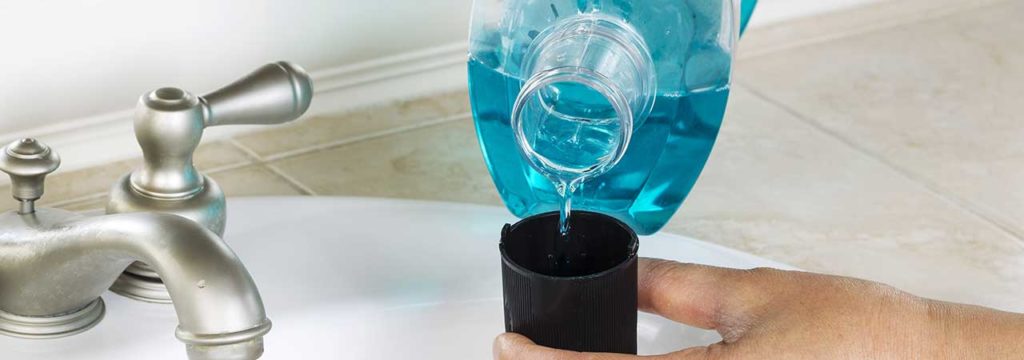Research suggests that most people these days regularly use mouthwash. Research also suggests that mouthwash in general is a subject of heavy debate and confusion.
For the sake of your everyday oral health and hygiene, using a premium dentist recommended mouthwash on a regular basis is important. But if you really want to get the most out of your mouthwash, it’s worth clarifying a few common concerns and myths.
So with this in mind, what follows is a brief overview of just a few frequently asked questions regarding mouthwash, along with their corresponding answers:
Q: Do I really need to use mouthwash?
In a word, yes. Even if you use the best electric toothbrush of 2018, it is impossible to give your mouth a comprehensive and hygienic clean without mouthwash. There are just far too many bits and pieces in the mouth that cannot be reached by brushing alone. When you use mouthwash properly, you address the corners of your mouth that would otherwise be missed. In terms of your oral health, hygiene and general freshness throughout the day, using mouthwash can make a significant difference and is considered mandatory by dentists.
Q: Aren’t all mouthwashes basically the same?
Absolutely not. For one thing, quality varies significantly from one product and manufacturer to the next. Some mouthwashes don’t get the job done nearly as well as their counterparts. Along with this, there are countless mouthwash products for sensitive teeth, products for whitening teeth, antiseptic products, alcohol-free products and so on. There’s an enormous market for mouthwash products, within which the vast majority are completely different from one another.
Q: Which is the best mouthwash on the market?
It’s impossible to say which mouthwash is the best on the market, for the simple reason that everyone’s needs are unique. For example, the perfect mouthwash for a person with sensitive teeth could be entirely different from the perfect mouthwash for a second person looking to whiten their teeth. The best mouthwash on the market comes entirely down to your own needs and preferences, along with the advice and recommendations of your dentist. If unsure, seek professional advice.
Q: Is it true that alcoholic mouthwash causes cancer?
No. This is simply a harmful rumour that came out of nowhere and has absolutely no scientific backing whatsoever. Not a single study to date has drawn any kind of correlation between the use of alcoholic mouthwash and any specific illnesses of the mouth. While it’s true to say that stronger mouthwashes need to be used with care and perhaps less frequently, you do not have to worry about serious consequences like cancer. If there were any such correlations whatsoever, alcoholic mouthwash wouldn’t be routinely sold and recommended by dentists.
Q: Are stronger mouthwashes to be avoided?
Again, it all depends on your own personal preferences and requirements. In some instances, stronger mouthwashes are to be avoided purely for comfort purposes. For example, those with particularly sensitive teeth and gums may find the strongest mouthwash products on the market uncomfortable to use. Likewise, strong mouthwash products may irritate sore spots within the mouth. The thing is, it’s been proven time and time again that mild mouthwash has the potential to be just as effective and beneficial as even the strongest mouthwash on the market. It’s therefore largely down to your own personal preferences, along with which mouthwash products your dentist recommends. If unsure, ask your dentist during your next check-up which mouthwash you should be using.
Q: How often should I use mouthwash?
One of the best things about quality mouthwash products is that they can be used on a relatively frequent basis with no harmful effects whatsoever. In fact, many dentists recommend reaching for a bottle of mild mouthwash at regular intervals during the day, in order to continually fight bacteria and remove residual debris. That said, using the strongest alcoholic mouthwash products on the market several times a day could irritate the gums, or lead to dry-mouth. You’ll usually find all the information you need on the product packaging, or feel free to ask your dentist if unsure.
Q: Can kids use adult mouthwash?
The answer to this question comes entirely down to the type of mouthwash you use. In some instances, mouthwash products are perfectly suitable for kids and adults alike. In others, there may be warnings against allowing the mouthwash to be used by any child under the age of 12. In the case of the latter, it’s important that such warnings be heeded. Some adult mouthwash products contain ingredients and formulations that are far too strong to be used safely by children. As such, it is typically recommended that kids are provided with specially-formulated mouthwash products for kids, if and when possible.
Q: What happens if I accidentally swallow mouthwash?
Contrary to popular belief, accidentally swallowing small amounts of mouthwash from time to time probably isn’t going to do you any harm. Particularly if using a relatively mild mouthwash with little to no alcohol. That said, it’s a different story entirely if you accidentally swallow a relatively large mouthful of one of the stronger alcoholic mouthwash products on the market. The manufacturer will typically provide guidelines as to what to do in the event of accidental swallowing, though in all instances it’s a good idea to seek medical advice as quickly as possible.
Q: Does mouthwash have an expiration date?
Last but not least, all dental health products have an expiration date. More often than not, there will be a small symbol on the bottle that determines exactly how long after opening it the remaining mouthwash should be discarded. On one hand, to accidentally use mouthwash that has passed its expiration date is unlikely to cause significant harm. On the other, expired mouthwash is unlikely to do your oral health and hygiene any benefits whatsoever. If in doubt, throw it out – a rule of thumb that applies to all expired products across the board!
